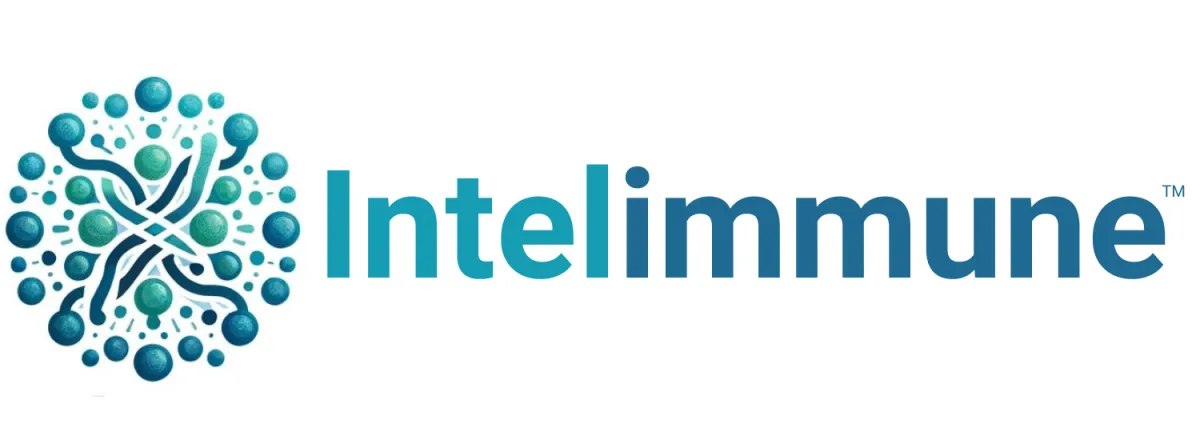Publications
2023
Feng, Bing, et al. “Post-hospitalization rehabilitation alleviates long-term immune repertoire alteration in COVID-19 convalescent patients.” Cell Proliferation, March 2023, doi: https://10.1111/cpr.13450
Tang, Wai Kwan, et al. “A human antibody epitope map of Pfs230D1 derived from analysis of individuals vaccinated with a malaria transmission-blocking vaccine.” Immunity, vol. 56, Feb. 2023, p. 433-443.E5, doi:
https://doi.org/10.1016/j.immuni.2023.01.012
Martinez, Ryan J., et al. “Type III interferon drives thymic B cell activation and regulatory T cell generation.”
PNAS, vol. 120, Feb. 2023, doi: https://doi.org/10.1073/pnas.2220120120
2022
Jia, C. et al. “Immune Repertoire Sequencing Reveals an Abnormal Adaptive Immune System in COVID-19 Survivors.” Journal of Medical Virology, November 2022. https://doi:10.1002/jmv.28340
Duurland CL, et al. “CD161 Expression and Regulation Defines Rapidly Responding Effector CD4+ T Cells Associated with Improved Survival in HPV16-Associated Tumors.” Journal for ImmunoTherapy of Cancer, vol. 10, Jan. 2022. doi: 10.1136/jitc-2021-003995
Husain-Krautter, Sehba, et al. “Skewing of the Antibody Repertoire in Cerebrospinal Fluid B Cells from Healthy Controls and Patients with Schizophrenia.” Behavioural Brain Research, vol. 422, Mar. 2022, doi:10.1016/j.bbr.2022.113743
Kumar, Deepak, et al. “T-follicular Helper Cell Expansion and Chronic T-Cell Activation are Characteristic Immune Anomalies in Evans Syndrome.” Blood, vol. 139, no. 3, Jan. 2022, p. 369-383, doi:10.1182.blood.2021012924.
Liu, Mingyong, et al. “Circulating Tregs accumulate in omental tumors and acquire adipose-resident features.”
Journal for ImmunoTherapy of Cancer, Mar. 2022, doi:10.1158/2326-6066.CIR-21-0880.
Xia, Miaoran, et al. “Next-Generation Sequencing Revealed a Distinct Immunoglobulin Repertoire with Specific Mutation Hotspots in Acute Myeloid Leukemia.” Biology, vol. 11, no. 2, Jan. 2022, p. 161, doi: 10.3390/biology11020161.
Song, Cailing, et al. “Immune repertoire analysis of normal Chinese donors at different ages.” Cell Proliferation, Aug. 2022, doi: 10.1111/cpr.13311.
Peng, Jiao, et al. “DNA-Programmed Orientation-Ordered Multivalent Microfluidic Interface for Liquid Biopsy.” Analytical Chemistry, Jun. 2022, doi: 10.1021/acs.analchem.2c01359.
Guo, Fei, et al. “Distinct Injury Responsive Regulatory T Cells Identified by Multi-Dimensional Phenotyping.”
Frontiers in Immunology, May 2022, doi: 10.3389/fimmu.2022.833100.
Zhou, Changping, et al. “Meningeal lymphatics regulate radiotherapy efficacy through modulating anti-tumor immunity.” Cell Research, vol. 32. Mar. 2022, 543-554, doi: 10.1038/s41422-022-00639-5.
Cook, Katherine Wendy, et al. “Vaccine Can Induce CD4-Mediated Responses to Homocitrullinated Peptides via Multiple HLA-types and Confer Anti-Tumor Immunity.” Frontiers in Immunology, Apr. 2022, doi:
10.3389/fimmu.2.
Zhang, Yudi, et al. “Analysis of B Cell Receptor Repertoires Reveals Key Signatures of the Systemic B Cell Response after SARS-CoV-2 Infection.” Journal of Virology, vol. 96, no.4, Feb. 2022, doi: 10.1128/jvi.01600-21.
Chou, Chun, etal. “Programme of self-reactive innate-like T cell-mediated cancer immunity.” Nature, vol. 605, Apr. 2022, p. 139-145, doi: 10.1038/s41586-022-04632-1.
Chen, Yi-Tung, et al. “Longitudinal High-Throughput Sequencing of the T-Cell Receptor Repertoire Reveals Dynamic Change and Prognostic Significance of Peripheral Blood TCR Diversity in Metastatic Colorectal Cancer During Chemotherapy.” Frontiers in immunology, Jan. 2022. doi: 10.3389/fimmu.2021.743448.
Hong, Hyebeen, et al. “Postnatal regulation of B-1a cell development and survival by the CIC-PER2-BHLHE41 axis.” Cell Reports, vol. 38, no. 7, Feb. 2022, doi: 10.1016/j.celrep.2022.110386.
Delmonte, Ottavia M., et al. “Poor T-cell receptor β repertoire diversity early posttransplant for severe combined immunodeficiency predicts failure of immune reconstitution.” Journal of Allergy and Clinical Immunology, vol. 149, no.3, Mar. 2022, p. 1113-1119, doi: 10.1016/j.jaci.2021.07.029.
Kumar, Deepak, et al. “T-follicular helper cell expansion and chronic T-cell activation are characteristic immune anomalies in Evans syndrome.” Blood, The Journal of the American Society of Hematology, vol. 139, no. 3, Jan. 2022, p. 369-383, doi: 10.1182/blood.202101Footer - Intelimmune2924.
IMPORTANT DISCLAIMER
The statements made regarding Intelimmune products have not been evaluated by the Food and Drug Administration. Our products are intended for informational purposes and are not designed to diagnose, treat, cure, or prevent any disease.
The information and analysis provided by Intelimmune are for educational purposes only and should not be taken as medical advice or a diagnosis. Our services are not a substitute for professional medical consultation. We advise consulting with a healthcare professional before making any health-related decisions, including changes in diet, exercise, supplements, or medications.
Intelimmune is dedicated to compliance with FDA and FTC guidelines, ensuring our practices meet current regulatory standards. Our tests aim to offer insights into your immune system for informational purposes only. It is essential to discuss test results with a healthcare professional, considering them as part of a broader health assessment.
Your use of Intelimmune's products and services indicates your understanding of their informational role and your responsibility for your health decisions. Intelimmune is not liable for any adverse outcomes related to the use of our products or services.
Phone: | Email:
Copyright 2026. All Rights Reserved.
Phone: | Email:
Copyright 2026. All Rights Reserved.
